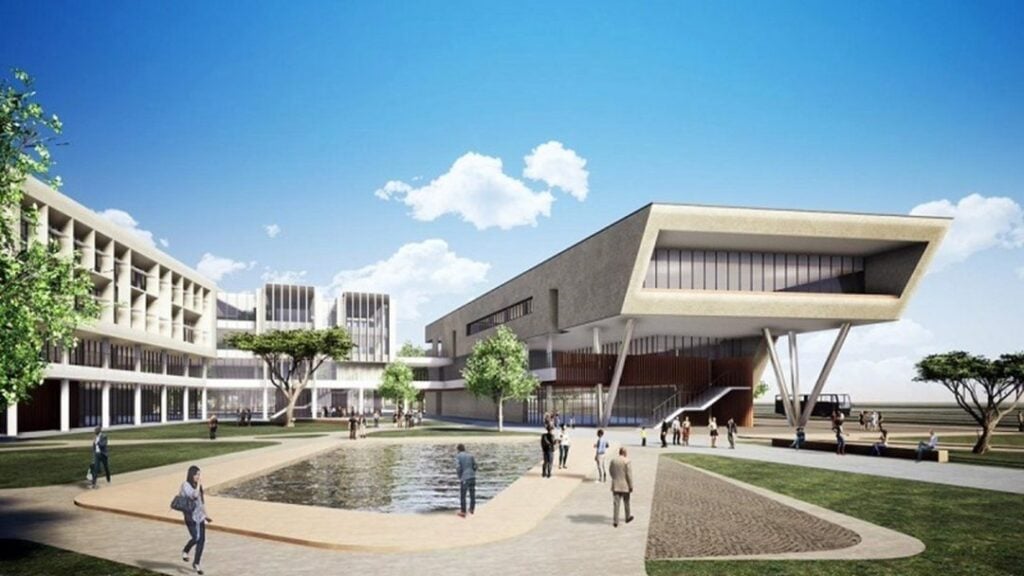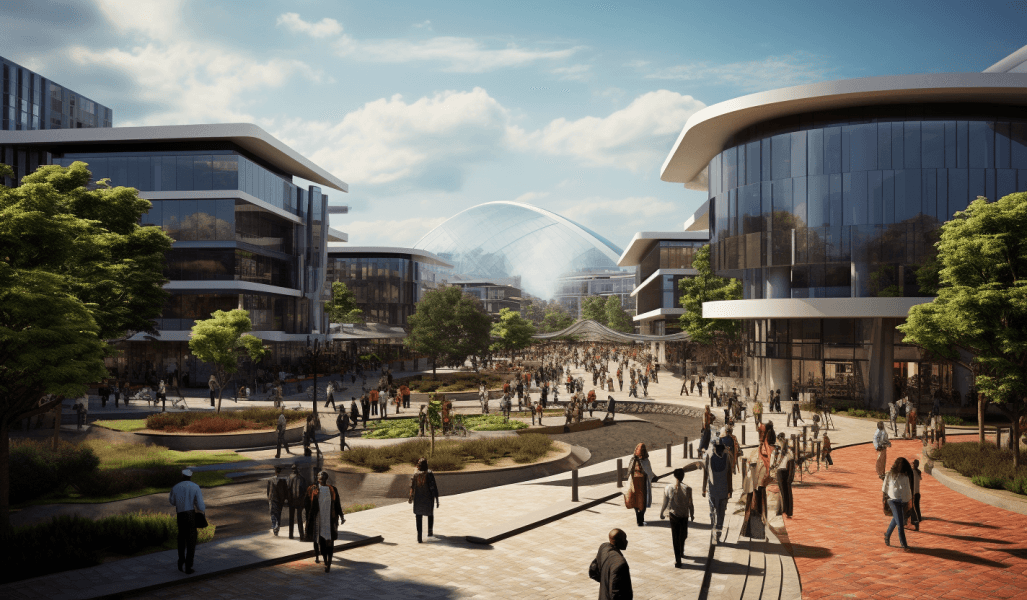Nestled just 64 kilometers south of Nairobi, a groundbreaking city is taking shape, promising a vibrant future for Kenya.
Konza Technopolis, previously called Konza Technology City, a visionary mixed-use project that has been in development for 13 years, is set to position Kenya as a technology leader in Africa and globally.
What sets Konza Technopolis, dubbed the Silicon Savannah, apart is its focus on becoming a smart city, a hub of innovation in technology, research, and education.
This ambitious endeavor is part of the Kenya 2030 initiative, designed to create a sustainable urban center that fosters growth and opportunity.
Table of Contents
Innovation at Its Core
Spanning 5,000 acres and developed in four phases, Konza Technopolis is more than just a city; it’s a revolution. The first phase alone will encompass 400 acres, featuring 12,960 residential units designed for 30,000 residents.
Affordable housing options are a priority, catering to middle-income families and students alike.
READ ALSO: KMRC’s Affordable Mortgage Options for Middle-Income Buyers
A Green Oasis
But what truly sets Konza Technopolis apart is its commitment to sustainability. The city is not just smart; it’s green.
From double-glazed windows and solar panels to rainwater collection and sensored facilities, every aspect of Konza Technopolis is designed for efficiency and eco-friendliness. The focus on green building practices and sustainable materials ensures a clean environment, efficient use of water, and reduced greenhouse gas emissions.
READ ALSO: First Hydrogen Power Plant in Kenya: HDF Announced $500 Million Green Hydrogen Project
Global Collaboration
With financial support from the Kenyan government and South Korea, the project is well on its way to realizing its vision.
In essence, Konza Technopolis is not just a city; it’s a promise. A promise of innovation, sustainability, and a brighter future for Kenya.
The master plan of Konza City was developed with inspiration from successful global urban centers, but it also takes into consideration the specific needs of Kenya and the region.
It envisions a city that functions both globally and locally, both now and in the future. The Local Physical Development Plan, approved by the Ministry of Lands in February 2013, incorporates key principles of livability, density, and walkability.
Konza City Masterplan
The city’s master plan follows a “stitch” framework, consisting of a mixed-use “bar” that runs east-west off Mombasa Highway and intersects with a series of program “bands” that run north-south. These bands include areas dedicated to a university, residential spaces, science and technology, and offices.
The intersections of these bars and bands create vibrant connections where special programs and higher density are concentrated. These intersections also serve as focal points for distinct neighborhoods. Additionally, the master plan includes a network of neighborhood parks located throughout the city.
The Konza Technopolis Development Authority oversees the development of the Konza master plan. This authority has entered into a 99-year lease with the Central Government of Kenya, granting it the power to sublease parcels to developers, finance the public infrastructure, and offer incentives to attract investors and tenants.
Konza City Development Update
Konza was meant to be completed in 2019. However, due to lack of investor funding and court battles, it is still under construction.
In 2022, $73 million was pumped into the continuation of the project by the government of Kenya.
An additional $6 million in grant was given by South Korea in March 2023 to help in the building of the Kenya Advanced Institute of Science and Technology (KAIST), modelled after the Korean Advanced Institute of Science & Technology.

The Kenya Advanced Institute of Science and Technology will be an institution of strategic national importance as Science, Technology, and Innovation is considered critical catalyst for fast tracking modernization and transformation of Kenyan society into middle-income country by 2030.
President Ruto secured $1 billion in 2022 from South Korea to build a smart city at Konza.
As of the latest update, Konza City, a pivotal component of Kenya’s “Vision 2030” initiative, is making remarkable progress. Phase One of this ambitious project is now at an impressive 88% completion.
Notable milestones include the smart city facilities, which are well underway at 55% completion, and the Konza Conference Facility, nearing 59% completion.
In tandem with this, core structures like administration buildings, laboratories, and accommodation for the Kenya Advanced Institute of Science and Technology (KAIST) have reached a 17.58% completion mark.
Impact on Real Estate
The development of Konza City is reshaping the real estate landscape in its vicinity, notably in towns like Athi River.
One specific estate in Athi River is Green Park Estate. Quite a number of residents that live in this estate work in Konza while others not to far from this technoplis.
As Konza City progresses toward completion, nearby areas are experiencing a surge in residential developments, attracting people who work within the city.
One significant factor contributing to this trend is the proximity of the booming Athi River town to Konza.
The Nairobi Expressway, not to far from Konza, has also played a key role in the desirability of living in or near Konza. This key infrastructure link not only ensures convenient commuting but also enhances the value of land in the surrounding regions.
As Phase One of Konza City nears completion, its impact on nearby real estate markets is evident. The city stands as a testament to Kenya’s forward-thinking approach, setting the stage for a visionary and thriving future.
Another development that is usually said in the same breathe as Konza, is Tatu City.
Tatu City is located in Ruiru and has changed not only the real estate market but also changed the perception of gated communities in Kenya.
It has also attracted a lot of international investments as well as partnerships with local banks on mortgages.
Commitment to Sustainable Development
The commitment to sustainable development is evident, as the Authority has established a tree nursery boasting 600,000 seedlings, with plans to scale up to an impressive 10 million trees.
This initiative is a vital component of Konza Technopolis’ greening endeavor, wherein technology is being harnessed to create an efficient and monitored smart tree nursery.
Moreover, Konza Technopolis is fostering urban farming technologies to bolster food security and contribute to wildlife preservation within its expansive 1000-acre wildlife corridor.
The Authority has further solidified its commitment to innovation by signing Memoranda of Understanding (MOUs) with UNESCO and ACTS. These partnerships are poised to propel digital entrepreneurship, advance research and development, and bolster skills development within the city.
In its entirety, Konza City exemplifies a forward-thinking approach to urban planning in Kenya, prioritizing sustainability, seamless technology integration, and robust economic development. This endeavor stands as a beacon of progress in the nation’s pursuit of a visionary and thriving future.



